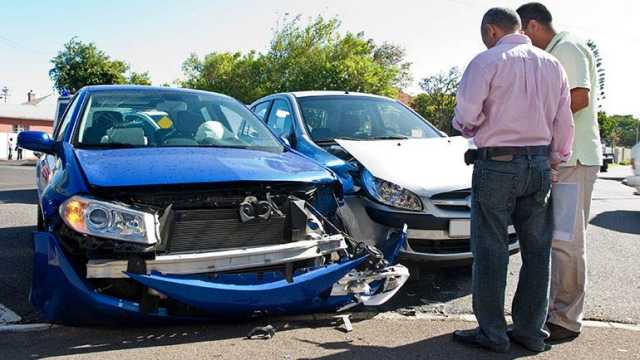Imagine this: you’re driving along, music playing, when suddenly, a collision changes everything. Your car is declared a total loss, leaving you to wonder about the next steps. One of the biggest questions that arise after such an incident is who actually gets the insurance check? This situation can be confusing and often leads to more questions than answers.
Understanding how car insurance works in these scenarios is crucial for anyone on the road. Whether it’s your first accident or you’re a seasoned driver facing yet another fender bender, knowing what to expect can save you time and frustration. Let’s break down the ins and outs of totaled cars and insurance checks so you can navigate this challenging experience with confidence.
Understanding Car Insurance and Total Loss
Car insurance is designed to protect you from financial loss in the event of an accident. When a vehicle suffers severe damage and costs more to repair than its market value, it’s labeled as a total loss. Understanding this concept is essential for any driver.
Insurance companies assess various factors when determining whether your car is totaled. They consider the repair costs, pre-accident value, and sometimes even safety concerns. Each company has its criteria for declaring a vehicle a total loss.
Once classified as such, the next steps involve claiming compensation through your policy. This process can vary based on coverage types—like liability or full coverage—and how comprehensive your plan is will impact what you receive after the incident.
Factors That Determine Whether a Car is Totaled
A car is deemed totaled when repair costs exceed its actual cash value. This threshold varies by state and insurance policy.
The age of the vehicle plays a critical role. Older cars may have lower market values, making them easier to total. Conversely, newer models might warrant repairs even after significant damage.
Damage severity also matters. A minor accident could lead to repairs, while extensive structural issues often result in a total loss.
Insurance adjusters assess all factors carefully. They consider both repair costs and pre-accident market value. Their calculations can directly impact your financial outcome post-accident.
Understanding these elements helps drivers navigate the complexities of car insurance claims effectively. Knowing what influences the decision empowers you to make informed choices during this stressful time.
Who Receives the Insurance Check?
When a car is totaled, the question of who receives the insurance check can be complex. Generally, if you own the vehicle outright, you’ll get the payout directly. This amount reflects its actual cash value before the accident.
However, if there’s an outstanding loan on your car, things change. The lender usually has a lien on it. In that case, they will receive the payment to cover what you owe them first.
If you’re leasing your vehicle, it’s similar; the leasing company often gets paid directly because they technically own it.
Sometimes disputes arise between parties involved in an accident too. If another driver was at fault and their insurer pays for damages to your vehicle, communication with both insurers may be necessary to determine where funds go.
Understanding these nuances helps clarify expectations after such a stressful event.
Options for Handling a Totaled Car
When faced with a totaled car, you have several options to consider. First, you can accept the insurance payout and move on. This is often the simplest route if you’re ready for a new vehicle.
Alternatively, if your attachment to the car runs deep or it has sentimental value, you might choose to keep it. In this case, you’ll need to negotiate with your insurance company about how much they’ll pay for repairs versus what they would give for a total loss.
Another option is to sell the totaled vehicle as-is. Many buyers look for salvage cars that can be repaired or used for parts. This could provide some extra cash in hand.
Consider refinancing or leasing another vehicle depending on your financial situation. Each choice carries its own set of pros and cons that should align with your needs and circumstances.
Steps to Take After Your Car is Totaled
When you find out that your car is totaled, it can be overwhelming. The first step is to contact your insurance company immediately. Report the accident and start the claims process.
Next, gather all relevant documents, including your policy details and any police reports about the incident. This information will help expedite your claim.
If possible, take photos of the damage for documentation purposes. Visual evidence can support your case with the insurance adjuster.
Consider contacting a trusted mechanic or appraiser to get an independent assessment of the vehicle’s value before settling with the insurer.
Keep records of all communications with both your insurance company and any other parties involved in the accident. This can be invaluable if disputes arise later on.
Stay informed about what happens next in terms of payment timelines and how you’ll handle transportation needs during this transition period.
Tips for Negotiating with the Insurance Company
Negotiating with your insurance company can feel daunting, but preparation is key. Start by gathering all relevant documentation: police reports, repair estimates, and any images of the damage.
Understand your policy inside out. Know what it covers and how much compensation you’re entitled to for a totaled vehicle. This knowledge empowers you during discussions.
When speaking with claims adjusters, remain calm and assertive. Clearly state your case while providing evidence that supports your position. Don’t accept the first offer; it’s often just a starting point.
Keep detailed notes of all conversations, including names and dates. This record will be invaluable if disputes arise later.
Consider enlisting an independent appraiser or lawyer if negotiations stall. Their expertise could help you secure a better settlement than going it alone might yield.
Conclusion
Navigating the aftermath of a totaled car can be confusing, especially when it comes to insurance claims. It’s essential to understand how your policy works and who is entitled to receive the compensation.
When a vehicle is deemed a total loss, several factors influence the situation. Whether you’re leasing or financing a car can significantly impact who gets that insurance check. If you own the vehicle outright, it may seem straightforward; however, if there are lienholders involved, they often have rights over any payout.
Understanding your options for handling a totaled car is crucial as well. You may choose to accept the check and buy another vehicle or negotiate with your insurer for better terms if you feel undervalued.
After your car has been declared totaled, follow some important steps: document everything thoroughly for future reference and communicate clearly with your insurance provider about what comes next.
Negotiating with an insurance company requires preparation and confidence. Being informed about market values and maintaining realistic expectations will serve you well in these discussions.
The complexities surrounding totaled cars and insurance claims make it vital to stay on top of all aspects involved. Each case varies widely based on individual circumstances, so being proactive is key in ensuring that you maximize any benefit from this unfortunate event.



